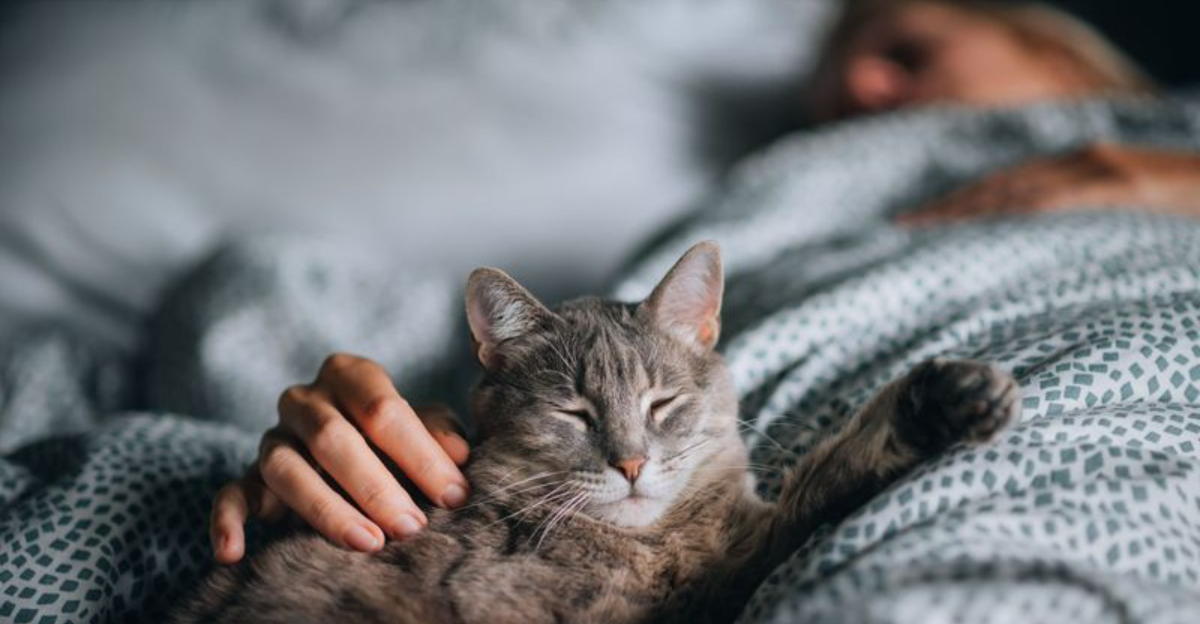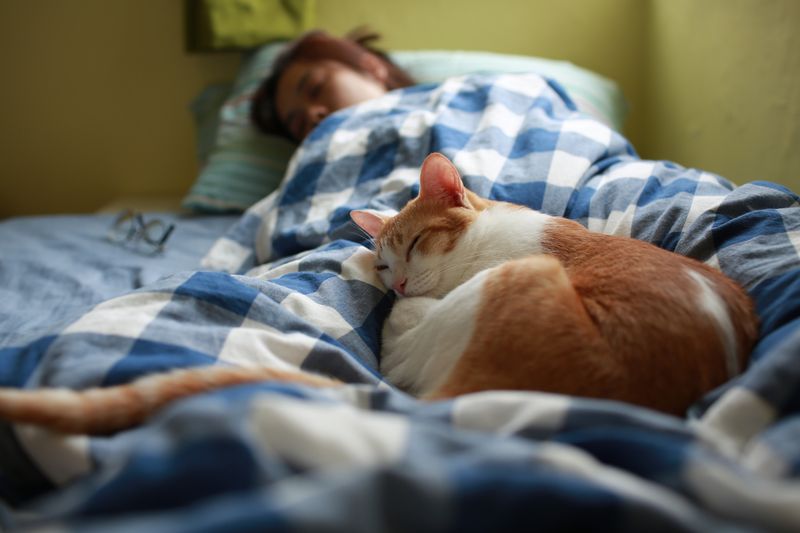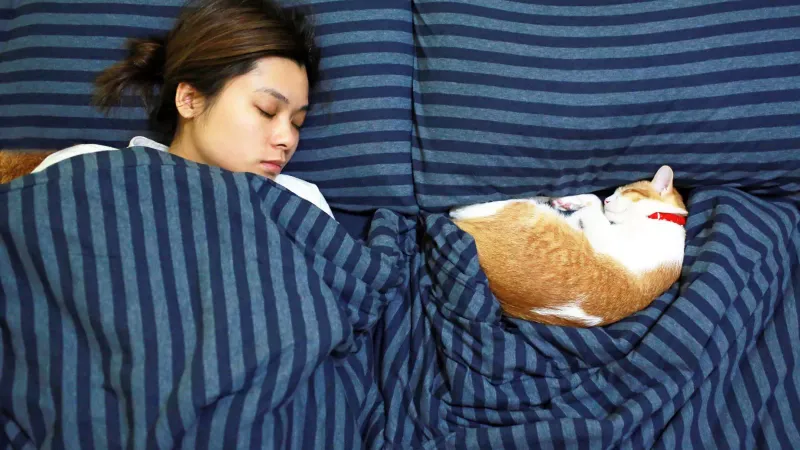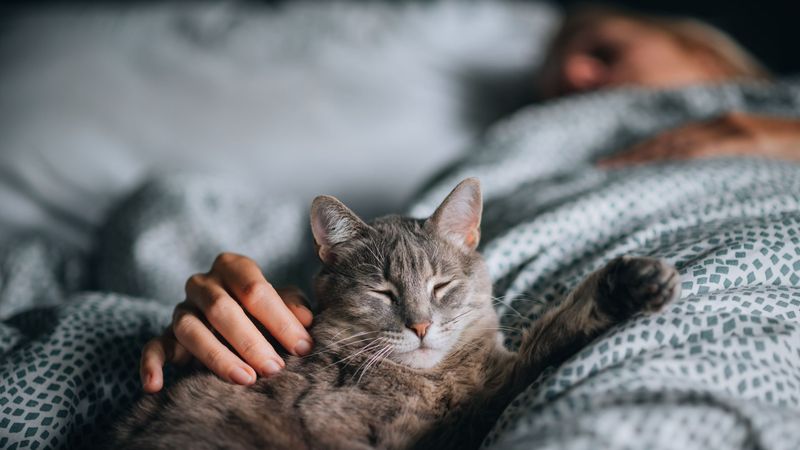📖 Table of Content:
Sharing a bed with a feline friend might sound comforting, but it comes with its own set of challenges. While many cherish the idea of cozy nights cuddling with their cats, the reality often includes sleep disturbances, allergies, and other health concerns. Understanding these issues can help cat owners make informed choices about where their furry companions rest at night. In this blog, we explore five reasons why letting your cat share the bed might not be the best idea for a good night’s sleep.
1. Sleep Disruptions
Cats, being crepuscular creatures, are most active during the twilight hours. This natural behavior can result in numerous nightly interruptions, such as pawing, meowing, or unexpected movements. Imagine being jerked awake by a sudden leap onto the bed or a curious paw tapping your face. Such disruptions can fragment sleep cycles, leaving one feeling unrested. Despite the charm of a purring companion, the cost may be a rough morning after a sleepless night. For those who prize their uninterrupted sleep, perhaps reconsidering your sleeping arrangements is the key to more restful nights.
2. Allergies and Asthma
Cat dander is a notorious allergen that can trigger sneezing fits or exacerbate asthma symptoms. Sleeping close to a cat increases exposure to these allergens, potentially leading to restless nights filled with sniffles and wheezing. Picture waking up repeatedly, reaching for tissues due to an itchy nose or watery eyes. Even if your love for your cat is as strong as ever, the impact on your respiratory health might be too significant to ignore. For those with sensitivities, maintaining a cat-free sleep environment could be a wise decision.
3. Hygiene Concerns
Cats can sometimes bring more than just companionship into bed, including dirt, debris, and occasional litter particles. Their outdoor adventures might also introduce fleas or ticks, which are unwelcome visitors in a sleeping space. Visualize waking up to find unexpected specks or feeling an itch from a tiny invader. While the cleanliness of a cat is often praised, the potential for hygiene issues should not be overlooked. Ensuring a clean sleeping area might mean setting boundaries on where your pet can roam during bedtime.
4. Potential Health Risks
While cats are beloved pets, they can carry bacteria and pathogens that pose health risks, particularly for those with weaker immune systems. Picture a serene night interrupted by health concerns such as cat scratch fever or other zoonotic diseases. The bond with your feline friend is invaluable, yet so is your health. Navigating the balance between affection and safety is crucial. For individuals with health vulnerabilities, reassessing where your cat sleeps might be essential to safeguarding well-being.
5. Temperature Regulation
Cats naturally have a higher body temperature than humans, usually ranging from 101°F to 102.5°F. Their cozy presence in bed can elevate the ambient temperature, turning a peaceful rest into a warm, uncomfortable experience. Imagine tossing and turning, unable to cool down due to the added heat. For those sensitive to temperature changes, this could lead to restless nights and groggy mornings. Considering your cat’s warm nature, it might be beneficial to provide them a separate sleeping spot.





